UNAOC and BMW Group Announce the 10 Recipients of the Intercultural Innovation Hub
- Details
- Category: World Hot News
- Published: Friday, 26 May 2023 16:27
- Written by Gentry

\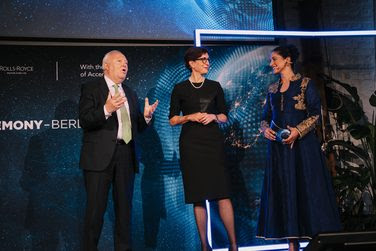
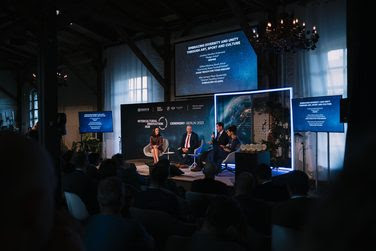
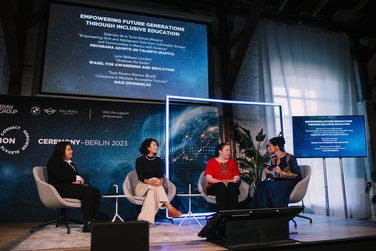
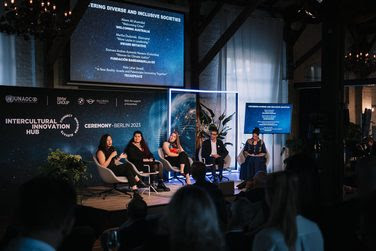
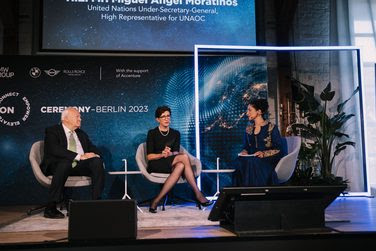
24 May 2023, Berlin, Germany — Ten global grassroots initiatives have been named recipients of the prestigious Intercultural Innovation Hub during a ceremony held in Berlin, Germany. A partnership between the United Nations Alliance of Civilizations (UNAOC) and the BMW Group, implemented with the support of Accenture, the Intercultural Innovation Hub recognizes and supports grassroots initiatives that promote intercultural dialogue and understanding, and contribute to peace, cultural diversity, and inclusive societies.
This year, civil society organizations from Australia, Brazil, Colombia, Germany, Guatemala, Indonesia, Israel, Jordan, Mexico, and South Africa were selected following a competitive process. Their projects range from fostering diverse and inclusive societies, to promoting gender equality and women’s empowerment, to promoting art, sports and culture for social change.
“Civil society is evolving in dynamic and impactful ways, with grassroots-level innovations at the forefront of driving meaningful change. The organizations we recognized through the Intercultural Innovation Hub exemplify just that. We are proud to amplify their contribution to diversity, mutual respect, and inclusion. Further, we celebrate our lasting collaboration with BMW Group as we continue to connect, empower, and elevate these grassroots initiatives,” said Miguel Ángel Moratinos, UN Under-Secretary-General and High Representative for UNAOC.
“At the BMW Group, we recognize that intercultural understanding enriches the communities we are acting in. That is why we are so proud of our strong partnership with UNAOC. The Intercultural Innovation Hub enables us to highlight some of the remarkable cross-cultural work being done worldwide. Our commitment to the recipients includes relevant resources we can offer that can promote these initiatives. This can make the crucial difference in turning an idea into practice that evolves local communities and improves people’s lives,” said Ilka Horstmeier, Member of the Board of Management of BMW AG People and Real Estate, Labour Relations Director.
The recipients of the Intercultural Innovation Hub will benefit from funding, as well as a comprehensive 12-month capacity-building and mentoring programme.
The 2023 Intercultural Innovation Hub Recipients, in no particular order, are as follows:
Inspire (Indonesia) – Pledge United
Inspire uses sport to tackle gender-based violence in Indonesia. Through Pledge United, Inspire offers an eight-week programme for boys that integrates football and gameplay with lessons about advocating for women’s rights. Through this football-based initiative, young men take a “pledge” to give the red card to gender-based violence.
Mais Diferenças (Brazil) – Literature in Multiple Accessible Formats
Mais Diferenças aims to provide accessible reading for people of all abilities. Based on the principles of universal design and accessibility, this project combines text, audio narratives, sign language animation and other features to give people with disabilities access to multimedia literature.
Oasis ‘Reach For Your Dreams’ (South Africa) – Community Street Football/Netball
Oasis ‘Reach for Your Dreams’ uses sport to educate and reintegrate youth at risk of becoming involved in gang-related activities. By encouraging young people to join street football events with a focus on fair play, team spirit and conflict management, the initiative empowers participants to live positive and self-sufficient lives.
Tech2Peace (Israel) – A New Reality: Israelis and Palestinians Innovating Together
Tech2Peace takes an innovative approach to peacebuilding by organizing seminars that provide technical and entrepreneurial training alongside intercultural and interfaith dialogue. The project creates a safe space where young Israelis and Palestinians can study and innovate collaboratively, creating fertile ground for cooperation and trust needed to advance peace in the region.
Fundación Ixcanul (Guatemala) – Itinerant Travelling Cinema
Fundación Ixcanul screens films in remote parts of Guatemala to give marginalized communities access to powerful stories told on the big screen. Through audiovisual storytelling, followed by panel discussions with residents, the project sparks conversations about such issues as poverty, inequality and racism. The initiative further provides media coverage to these remote areas, amplifying the voices of local creators.
Programa Adopte un Talento / PAUTA (Mexico) – Empowering Girls and Adolescent Girls from Vulnerable Groups and Communities in Mexico with Science
PAUTA works to recognize and nurture the talent of girls with an aptitude for science. Through a gender-based approach to scientific learning, which pairs gifted students from marginalized groups with a mentor, this programme enables girls to reach their full potential in the STEM field.
Welcoming Australia (Australia) – Welcoming Cities
Welcoming Australia is dedicated to creating a prosperous and cohesive nation built on inclusive multicultural communities. Their Welcoming Cities project is a network of cities and towns that work to include people from all walks of life into the social, cultural, economic and civic life of their communities. This project champions the idea that embracing diversity is the key to Australia’s economic success and social cohesion.
Wasel for Awareness and Education (Jordan) – Shabbek Wa Bader
Wasel for Awareness and Education breaks down cultural and socioeconomic barriers by fostering connections and understanding between youth of diverse backgrounds. The Shabbek Wa Bader project aims to deconstruct the “victim-and-hero” mentality of voluntary work by bringing together youth from both public and private high schools to work together to create robust solutions for their communities.
SWANS Initiative (Germany) – More Leylas in Leadership
The Swans Initiative provides professional opportunities to women facing intersectional discrimination in the job market. Through mentorship, career coaching, and capacity-building, their initiative ensures German-raised academics, particularly immigrant women, Black women and women of color, get equal access to the employment opportunities they have earned and deserve.
Fundación Barranquilla+20 (Colombia) – Women for Climate Justice
Fundación Barranquilla+20 ensures marginalized women get a seat at the table of climate decision-making. The project advocates for the participation of young marginalized women — including indigenous, Black, women of color, and migrant women — in climate talks. Leveraging the leadership of 16 young Colombian women by supporting them in advancing gender and climate justice, the project seeks to place gender equity at the heart of climate policy.






 UN Photo/Ichiro Mae Secretary-General António Guterres speaks to the press, wrapping up his trip to Japan for the G7 Hiroshima Summit 2023.
UN Photo/Ichiro Mae Secretary-General António Guterres speaks to the press, wrapping up his trip to Japan for the G7 Hiroshima Summit 2023.

 © ILO/Ahmad Al-Basha/Gabreez A woman mends a laptop at her phone and computer maintenance shop in Taiz, Yemen.
© ILO/Ahmad Al-Basha/Gabreez A woman mends a laptop at her phone and computer maintenance shop in Taiz, Yemen.
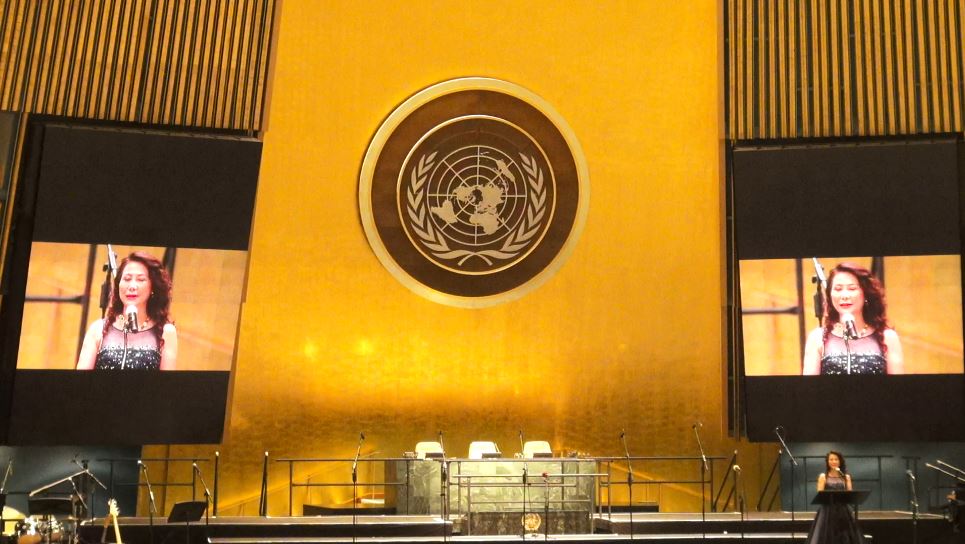
 UN Women/Rosendo Quintos Oralia Ruano Lima was among the first women in her indigenous community to join an all-female entrepreneurship project as a beekeeper.
UN Women/Rosendo Quintos Oralia Ruano Lima was among the first women in her indigenous community to join an all-female entrepreneurship project as a beekeeper.




